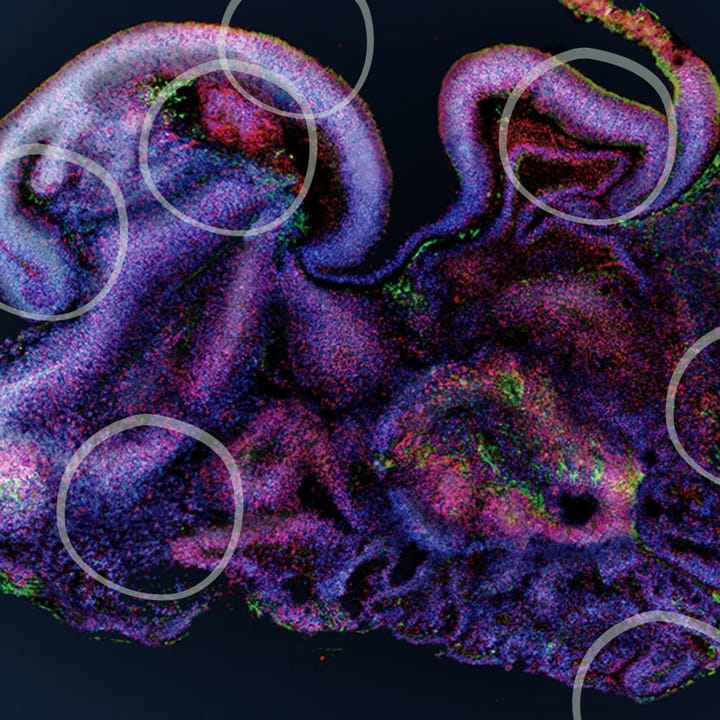For the first time, five patients diagnosed with the incurable autoimmune disease lupus have been sent into remission using a therapy previously designed for treating cancer. This has opened up the possibility of keeping other autoimmune diseases at bay. By Catherine Turnbull.
Our immune system is vital for protecting us against pathogens within our environment. It adapts and remembers previous infections we have encountered from the protein markers, known as antigens, on the surface of invading microbes. B-cells remember these antigens and produce antibodies to attack the invading pathogens. However, sometimes our immune system can target antigens a little too close to home. Despite functioning as a diverse and intricate system, this intelligent cluster of cells can go rogue, attacking and harming our own cells within our bodies, ultimately damaging our tissues and organs. This self-destructive sabotage results in an array of autoimmune diseases - a set of long-term health conditions, varying in severity and incidence.
Once you are diagnosed with an autoimmune disease you have it for life, as your immune system cannot ‘unlearn’ and symbiotically co-exist with your body’s cells that it now considers ‘foreign’. Systemic lupus erythematosus, also called lupus, is a chronic autoimmune disease which damages multiple organ systems within the body, with its flare-ups associated with a high rate of morbidity and mortality [1]. In lupus, auto-antibodies are produced against a patient’s own double-stranded DNA, triggering inflammation in their organs including the skin, heart, kidney and lungs [2]. There is currently no cure for lupus. Only immunosuppression can ultimately reduce the incidence of flare-ups within patients. However, this requires lifelong treatment, leaving patients susceptible to other infections.
Scientists have recently published in the journal of Nature Medicine a novel treatment for lupus, which involves a previously developed cancer therapy known as chimeric antigen receptor (CAR) T-cells [2]. This treatment redirects patients’ T-cells to target the CD19 antigen present on the surface of B-cells in an attempt to wipe out cancers in the body that arise from this type of cell - namely B-cell lymphomas like acute lymphoblastic leukemia (ALL).

In the study, CAR T-cell therapy allowed a ‘reset’ of the immune system in five patients diagnosed with lupus, replacing the need for immunosuppression. This left the patients in drug-free remission months after treatment and was proven safe and effective within this small cohort. Moreover, the trial demonstrated the specificity of CAR T-cell therapy since it exclusively targeted auto-antibody-producing cells, leaving all other antibodies in these five patients unaffected. This was evident by the fact that they had similar antibody levels from previous vaccinations before and after CAR T-cell treatment. Moreover, 100 days after treatment, the patients’ own B cells were renewed without restoring any symptoms of lupus.
The use of CAR T-cells was first approved by the FDA in 2017 to treat ALL [3]. Since autoimmune diseases are in some cases caused by the production of antibodies against their cell’s own antigens (or auto-antigens), the specific target antigens are sometimes unknown [4].
“We are very excited about these results,” says Professor Georg Schett, who led the study at Friedrich-Alexander University in Germany [5]. “Several other autoimmune diseases which are dependent on B cells and show auto-antibodies may respond to this treatment. These include rheumatoid arthritis, myositis and systemic sclerosis. But also diseases like multiple sclerosis may be very responsive to CAR T-cell treatment.”
Multiple sclerosis is a type of autoimmune disease, where a patient's B cells produce antibodies which damage the myelin that insulates nerves within the central nervous system [6]. This leads to the gradual decline in an individual’s ability to move, eat and speak. It is hoped that due to the success of CAR T-cells in treating lupus, the same positive outcome could be seen for patients diagnosed with multiple sclerosis.
Although CAR T-cells appear to be a promising treatment for autoimmune diseases, caution needs to be taken due to the very small cohort used and the limited age range tested (18-24 years old) [2]. Moreover, there is no long-term data on the efficacy of CAR T-cell therapy for autoimmune diseases and more follow-ups will be needed to determine how long remission lasts. Despite this, CAR T-cell therapy provides an exciting insight into how autoimmune diseases could be treated, making complete remission a hopeful possibility.
References
- Shaikh MF, Jordan N, D’Cruz DP. Systemic lupus erythematosus. Clin Med (Northfield Il) [Internet]. 2017 Feb 1 [cited 2022 Oct 8];17(1):78. Available from: /pmc/articles/PMC6297589/
- Mackensen A, Müller F, Mougiakakos D, Krönke G, Schett G✉, Böltz S, et al. Anti-CD19 CAR T cell therapy for refractory systemic lupus erythematosus. Nat Med 2022 [Internet]. 2022 Sep 15 [cited 2022 Oct 8];1–9. Available from: https://www.nature.com/articles/s41591-022-02017-5
- Mullard A. FDA approves first CAR T therapy. Nat Rev Drug Discov [Internet]. 2017;16(10):669. Available from: http://dx.doi.org/10.1038/nrd.2017.196
- Aghajanian H, Rurik JG, Epstein JA. CAR-based therapies: opportunities for immuno-medicine beyond cancer. Nat Metab 2022 42 [Internet]. 2022 Feb 28 [cited 2022 Oct 9];4(2):163–9. Available from: https://www.nature.com/articles/s42255-022-00537-5
- Ian Sample. Scientists hail autoimmune disease therapy breakthrough | Science | The Guardian [Internet]. 2022 [cited 2022 Oct 9]. Available from: https://www.theguardian.com/science/2022/sep/15/scientists-hail-autoimmune-disease-therapy-breakthrough-car-t-cell-lupus
- Frohman EM, Racke MK, Raine CS. Multiple Sclerosis — The Plaque and Its Pathogenesis. https://doi.org/101056/NEJMra052130 [Internet]. 2006 Mar 2 [cited 2022 Oct 9];354(9):942–55. Available from: https://www.nejm.org/doi/full/10.1056/NEJMra052130





